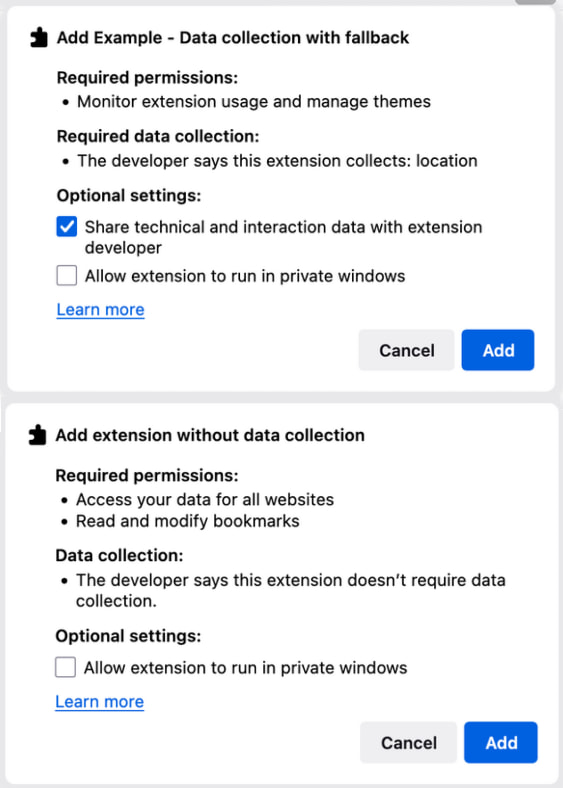
Beginning November 3, 2025, Mozilla will require all new Firefox extensions to explicitly declare whether they collect or transmit personal data.
The new mandate, announced by Mozilla engineer Alan Byrne, aims to enhance user transparency and privacy by leveraging a new key in the extension manifest.
According to Mozilla, the update affects only new extensions submitted after the enforcement date and does not apply retroactively to updated versions of existing extensions, at least for now. Extension developers must use the browser_specific_settings.gecko.data_collection_permissions field in the manifest.json file to specify their data collection practices. If no data is collected, developers must indicate this explicitly by setting the permission to none.
This declaration will be presented to users at the time of installation, alongside the standard permission prompts. Additionally, the data collection status will be visible on the add-on's page on addons.mozilla.org, as well as in the Permissions and Data section within Firefox's about:addons interface.

The new requirement aligns with Mozilla's broader mission to promote user agency and privacy in an increasingly complex extension ecosystem. Firefox extensions are often used to modify or enhance browser functionality, ranging from ad blockers and password managers to productivity tools. However, these same extensions can serve as vectors for data harvesting if left unchecked. By embedding clear data declarations into the extension manifest, Mozilla ensures users can make informed decisions before installing potentially invasive software.
Developers targeting Firefox versions earlier than 140 on desktop or 142 on Android will still need to provide users with clear post-install controls for managing data collection. For those using the new manifest keys, consistency is key. Once a developer adopts the data_collection_permissions schema in a version, it must be retained in all subsequent updates. Failure to include it properly will block the extension from being submitted for signing on addons.mozilla.org, halting distribution.
While these rules apply only to new extensions starting November 3, Mozilla plans to extend the requirement to all extensions in the first half of 2026. The organization has promised advance notice and tooling support for this broader rollout, with further updates expected via the official Add-ons Blog.





Leave a Reply